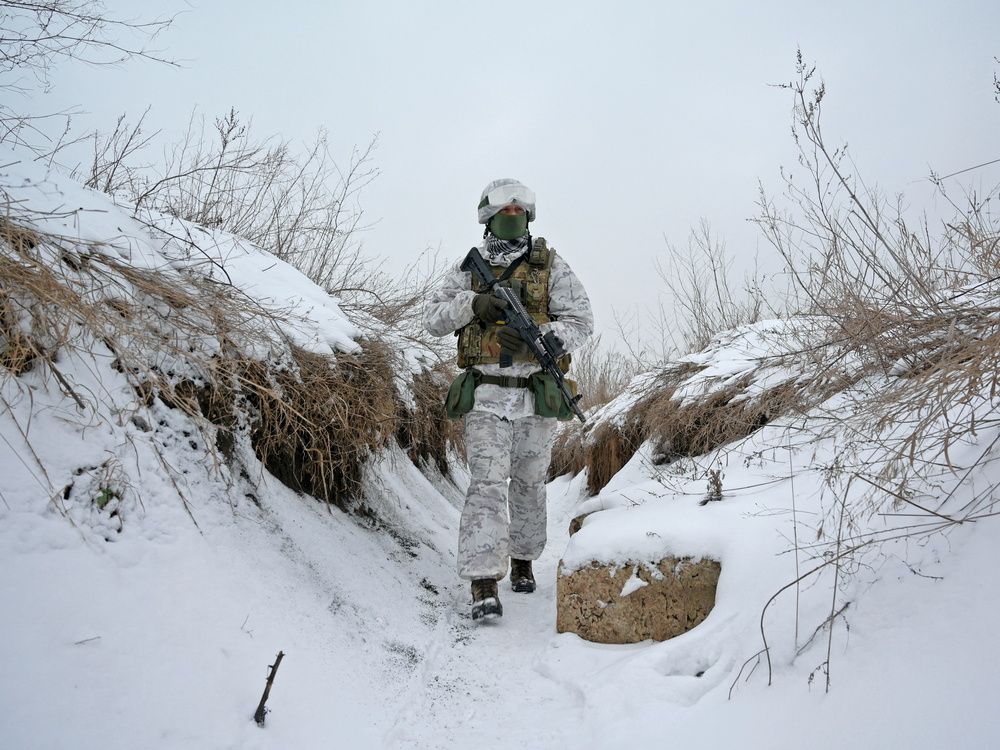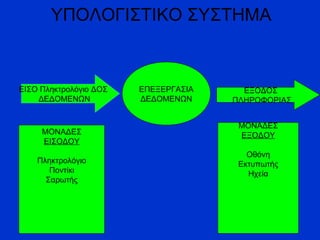The Geopolitical Impact Of Increased Military Spending In Europe

Table of Contents
The Drivers of Increased Military Spending in Europe
Several interconnected factors have driven the recent increase in European military spending. Understanding these drivers is crucial to comprehending the broader geopolitical implications.
The War in Ukraine
The 2022 Russian invasion of Ukraine served as a stark wake-up call for many European nations. The conflict dramatically altered security perceptions, highlighting vulnerabilities and underscoring the need for robust defense capabilities.
- Increased threat perception: The war demonstrated Russia's willingness to use military force to achieve its geopolitical objectives, prompting a reassessment of existing security threats.
- NATO expansion: Finland and Sweden's applications for NATO membership, directly influenced by the war, reflect a growing desire for collective security within the alliance. This expansion further underscores the impact of the Ukrainian conflict on European defense strategies.
- Demand for advanced weaponry: The war highlighted the need for modernized weaponry and advanced military technologies, leading to increased investment in areas such as air defense systems, cyber warfare capabilities, and long-range precision munitions. This increased demand is boosting defense industry production across Europe.
Rising Russian Aggression
Russia's increasingly assertive foreign policy, including its annexation of Crimea in 2014 and its ongoing military interventions in Syria and Ukraine, has fueled concerns about its intentions and capabilities. This perceived threat has spurred significant increases in military spending across Europe.
- Modernization of armed forces: Many European countries are undertaking significant modernization programs to enhance their military capabilities and improve their readiness to respond to potential threats from Russia.
- Strengthening of alliances: The war in Ukraine has strengthened alliances, particularly within NATO, prompting closer military cooperation and increased defense spending to bolster collective security.
- Deterrence strategies: Increased military spending is seen as a vital component of deterrence strategies aimed at discouraging further Russian aggression and ensuring regional stability.
Growing Global Instability
The broader international security context, characterized by rising global instability, has also contributed to the increase in European military spending.
- Terrorism: The persistent threat of terrorism, both domestically and internationally, necessitates continued investment in counter-terrorism measures and intelligence capabilities.
- Cyber warfare: The growing sophistication of cyberattacks poses a significant threat to critical infrastructure and national security, prompting increased investment in cybersecurity and defense against cyber warfare.
- Competition with China: The rise of China as a global power presents new geopolitical challenges, including competition in areas such as technology and influence. This necessitates a reassessment of defense strategies and increased investment in certain capabilities.
- Energy security concerns: Europe's dependence on Russian energy has been exposed as a vulnerability, leading to efforts to diversify energy sources and enhance energy security, which often have military implications.
Geopolitical Consequences of Increased Military Spending
The increased military spending in Europe has far-reaching geopolitical consequences, impacting various aspects of the regional and international landscape.
NATO's Role and Expansion
The surge in military spending strengthens NATO's collective defense posture and has implications for its future strategic direction.
- Enhanced military capabilities: Increased spending allows member states to upgrade their military equipment and improve their overall military readiness.
- Strengthened collective defense: The enhanced capabilities contribute to a stronger collective defense posture, providing greater assurance to member states and deterring potential adversaries.
- Potential for increased tensions with Russia: NATO's expansion and the increased military presence near Russia's borders could lead to increased tensions and the risk of miscalculation.
EU's Strategic Autonomy
Increased defense spending also influences the European Union's efforts to develop its own defense capabilities and strategic autonomy.
- Increased cooperation on defense projects: EU members are increasingly cooperating on defense projects, aiming to improve interoperability and reduce reliance on non-European defense industries.
- Potential for competition with NATO: The EU's pursuit of strategic autonomy could potentially lead to competition with NATO, particularly regarding resource allocation and strategic priorities.
- Challenges of coordinating diverse national interests: Coordinating the diverse national interests and defense policies of EU member states remains a significant challenge.
Impact on Bilateral Relations
Increased military spending affects relationships between European countries and their interactions with other global powers.
- Alliances and partnerships: The increased spending influences the formation and strengthening of alliances and partnerships, shaping the broader geopolitical landscape.
- Potential for arms races: The increase in military spending could potentially lead to regional arms races, escalating tensions and undermining efforts at arms control and disarmament.
- Impact on trade and economic relations: Military spending can have significant implications for trade and economic relations, both within Europe and with other countries.
Economic and Social Implications of Increased Military Spending
The economic and social consequences of increased military spending are significant and deserve careful consideration.
Opportunity Costs
The significant investment in defense necessarily means a diversion of resources from other critical sectors.
- Budgetary constraints: Increased military spending can lead to budgetary constraints in other crucial areas such as healthcare, education, and infrastructure development.
- Trade-offs between defense and social spending: Societies must grapple with the trade-offs between investing in defense and investing in social programs vital for long-term societal well-being.
- Long-term economic consequences: The long-term economic consequences of prioritizing military spending over social investments need careful evaluation.
Economic Stimulus
Defense spending can also stimulate economic activity through investments in the defense industry.
- Job creation: The defense industry provides jobs in manufacturing, research, and development, contributing to employment in various sectors.
- Technological innovation: Defense spending often drives technological innovation, with spin-off effects in other sectors.
- Boosting domestic industries: Investment in domestic defense industries can strengthen national competitiveness and technological capabilities.
Public Opinion and Support
Public opinion on increased military spending is a key factor shaping political decisions and potentially influencing the stability of governments.
- Public support for defense spending: Public support for increased defense spending is often tied to perceived threats and security concerns.
- Debate on priorities: Public debate on how to allocate resources between defense and other social needs remains a central element of political discourse.
- Impact on political discourse: The issue of military spending heavily influences political debate, particularly in relation to budgetary allocations and foreign policy decisions.
Conclusion
This article has explored the multifaceted geopolitical impact of increased military spending in Europe, examining its drivers, consequences, and associated economic and social implications. The surge in spending is driven by a complex interplay of factors, including the war in Ukraine, rising Russian aggression, and broader global instability. The consequences are equally complex, shaping alliances, affecting the EU and NATO, and impacting bilateral relations. The economic and social costs and benefits need careful consideration and public debate.
Understanding the intricate implications of increased military spending in Europe is crucial for informed policymaking and public discourse. Further research and analysis of the long-term effects of this trend are needed to navigate the evolving geopolitical landscape effectively. Continue to engage with discussions on the implications of increased military spending in Europe and its potential future ramifications to foster a deeper understanding of its impact on global security.

Featured Posts
-
 Nba Week 16 Cavaliers Big Trade And The Importance Of Player Rest
Apr 30, 2025
Nba Week 16 Cavaliers Big Trade And The Importance Of Player Rest
Apr 30, 2025 -
 Pacers Vs Cavs Complete Guide To The Upcoming Matchup
Apr 30, 2025
Pacers Vs Cavs Complete Guide To The Upcoming Matchup
Apr 30, 2025 -
 I Isxys Ton Ypologiston Inon Stin Prolipsi Kai Diagnosi Astheneion
Apr 30, 2025
I Isxys Ton Ypologiston Inon Stin Prolipsi Kai Diagnosi Astheneion
Apr 30, 2025 -
 Iwd 2024 Schneider Electrics Nigerian Womens Empowerment Program
Apr 30, 2025
Iwd 2024 Schneider Electrics Nigerian Womens Empowerment Program
Apr 30, 2025 -
 Schneider Electric Brings Climate Smart Villages To Africa A Sustainable Future
Apr 30, 2025
Schneider Electric Brings Climate Smart Villages To Africa A Sustainable Future
Apr 30, 2025
Latest Posts
-
 Il Venerdi Santo Un Commento Di Feltri
Apr 30, 2025
Il Venerdi Santo Un Commento Di Feltri
Apr 30, 2025 -
 Severe Flooding Cancels Thunder Over Louisville Fireworks Show
Apr 30, 2025
Severe Flooding Cancels Thunder Over Louisville Fireworks Show
Apr 30, 2025 -
 Feltri Sul Venerdi Santo Un Opinione Controversa
Apr 30, 2025
Feltri Sul Venerdi Santo Un Opinione Controversa
Apr 30, 2025 -
 Kentuckys Louisville Under State Of Emergency Due To Tornado And Imminent Flooding
Apr 30, 2025
Kentuckys Louisville Under State Of Emergency Due To Tornado And Imminent Flooding
Apr 30, 2025 -
 Ohio River Flooding Forces Cancellation Of Thunder Over Louisville Fireworks
Apr 30, 2025
Ohio River Flooding Forces Cancellation Of Thunder Over Louisville Fireworks
Apr 30, 2025
